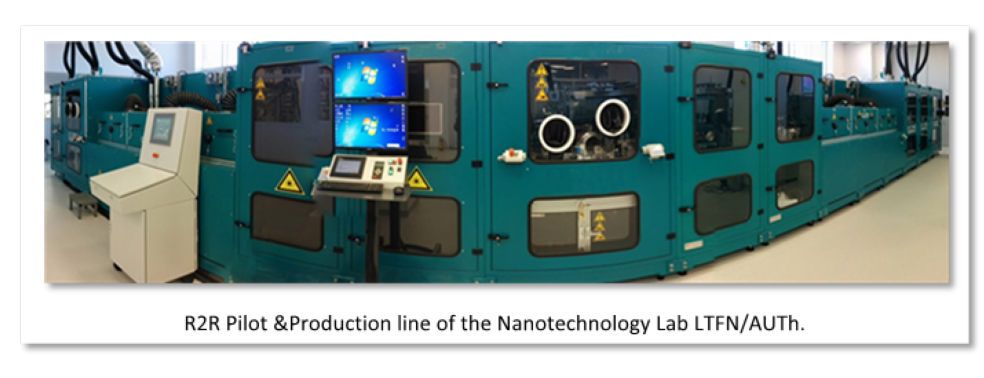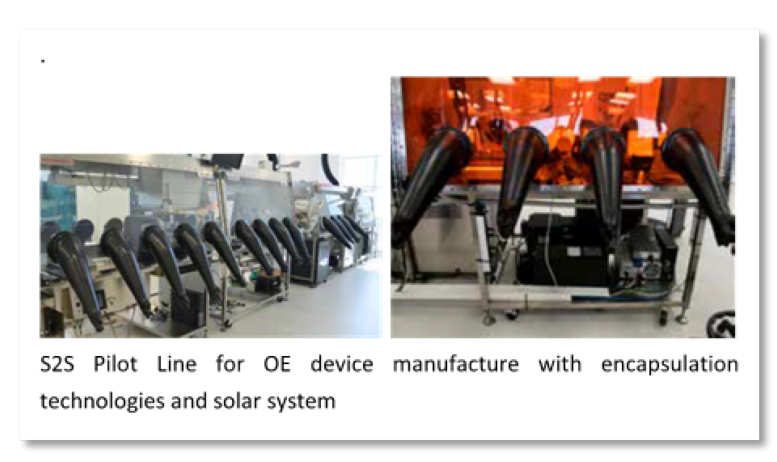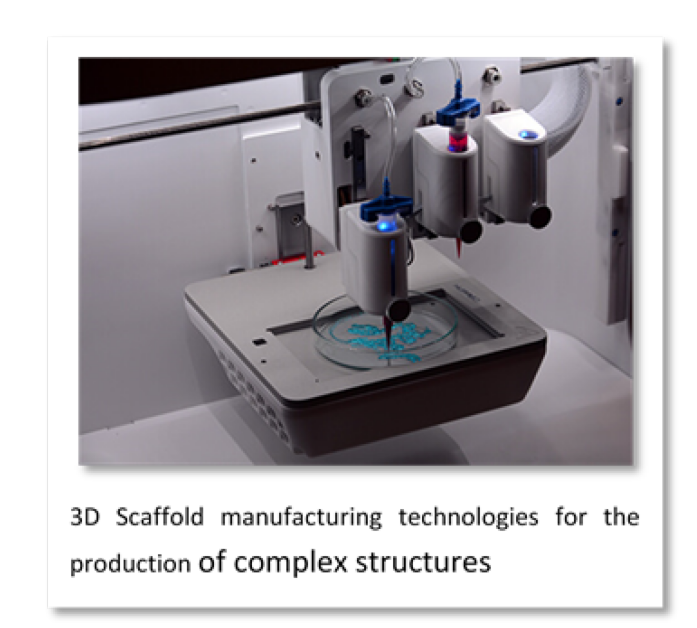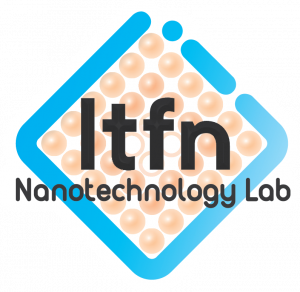
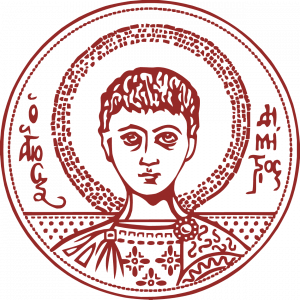
Nanotechnology Lab LTFN, Aristotle University of Thessaloniki (LTFN/AUTh)
Products and Services
Main research activities and services
LTFN Services for Organic and Printed Electronics, Thin Films, Nanomaterials, Nanoengineering, Optical Technology and Nanometrology
- R2R Pilot &Production line: large area R2R manufacturing of OE devices, equipped with Ultra-fast Laser scribing and in-line metrology systems. Main technologies used: Printing (Slot-die, Inkjet, Screen printing), Ultrafast Laser Patterning, Encapsulation module, Raman Spectroscopy & In-line Spectroscopic Ellipsometry.
- Sheet2Sheet Pilot line: Hybrid Printing and Vacuum Technologies for OE devices with Encapsulation technologies and Solar Simulator system.
- OVPD Cluster-Gas Transport Pilot line: Scalable OVPD Pilot line equipped with in-situ optical metrology systems (Raman Spectroscopy, Spectroscopic Ellipsometry) for high precision fabrication of OE devices.
- Lab scale Printing: Printing techniques (S2S Gravure, Slot-die, Inkjet) for Digital fabrication of OEs & Bioelectronics nanomaterials, devices and systems.
- Short & Ultrashort Pulsed Lasers systems: High energy laser systems for ultrafast processes (laser ablation, laser annealing, patterning) for fabrication and functionalization of novel nanomaterials and nanoparticles.
- CVD Pilot line: Thermal and Plasma CVD Pilot line for Graphene and 2Dnanomaterials growth in 6” wafers. The system is equipped with real-time optical monitoring techniques (Vis-UV SE and Raman) for in situ characterization and process optimization.
- 2 Ultra High & 1 High Vacuum Pilot lines: equipped with state-of-the-art PVD techniques (DC & RF Magnetron Sputtering, HiPIMS, Thermal & e-beam Evaporation) for thin film growth on 2D/3D substrates.
- Surface and Nanomechanical characterization facilities: Variety of systems (SPM platforms, SNOM and Nanoindentation systems) that enable the surface and nanomechanical characterization of nanomaterials and devices.
- Fully equipped Labs for chemical synthesis, laser-based fabrication and solution processing of inorganic and organic nanoparticles.
- Contribution to the connection of the NanoMECommons project with the academic, research and industrial communities, through its huge ecosystems. One of the main networks to be contacted will be the Research & Innovation Network “NanoNet” (www.nanonet.gr) coordinated by AUTh.
- Communication and interaction with other EU Projects, such as in FoF, OIE, OITB.
Links and communication with EU clusters/Platforms/Networks as EFFRA, EMCC, EMMC (AUTh member) and EPPN (AUTh member), OE-A, EUPVClusters, Nanosafety.

